COVID-19 I (2020): Impacts on Scientific Research
SciOPS conducted the initial COVID-19 survey of academic scientists in May 2020 to look at how COVID-19 policies have influenced academic scientists’ home-life, research, and views on policy.
Question
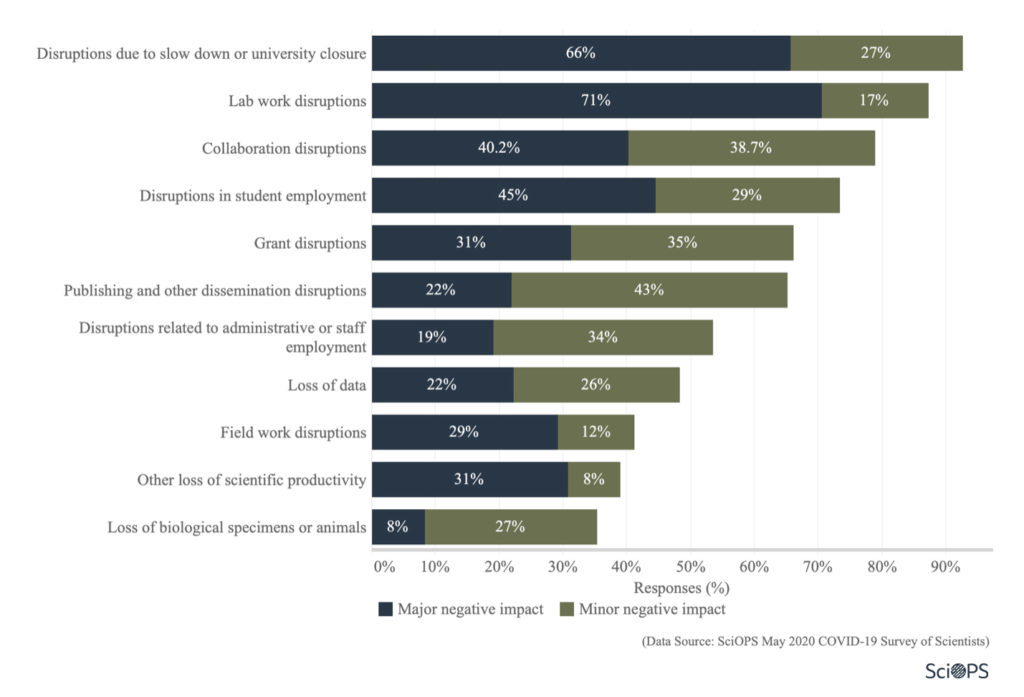
Finding
The majority of scientists responded that they faced substantial negative research impacts as a result of COVID-19 policies with the most disruptive being university shutdowns (93%) and lab work disruptions (88%).
Question
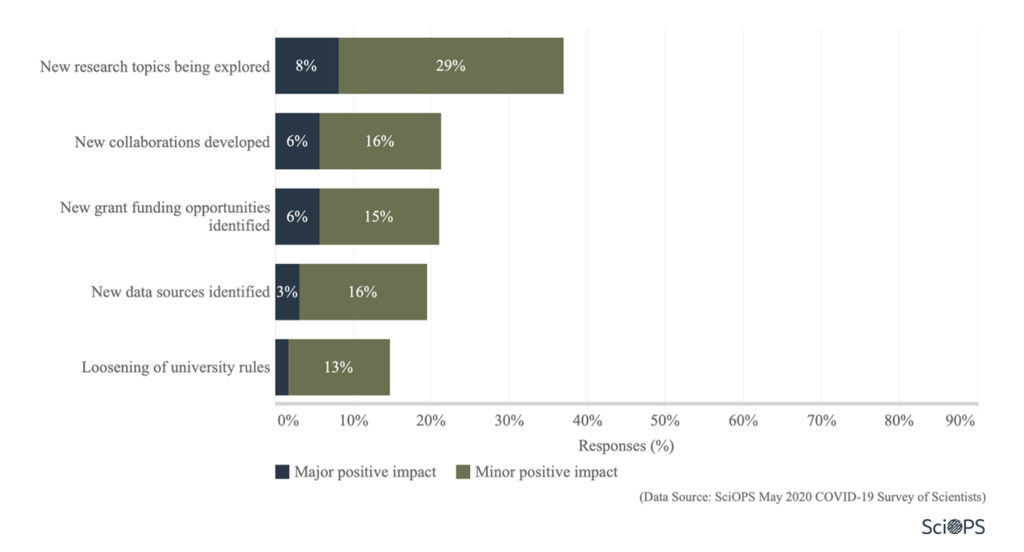
Finding
Scientists responded that the greatest positive research impacts as a result of COVID-19 policies are the development of new research topics (37%) and new collaborations (22%).
Question
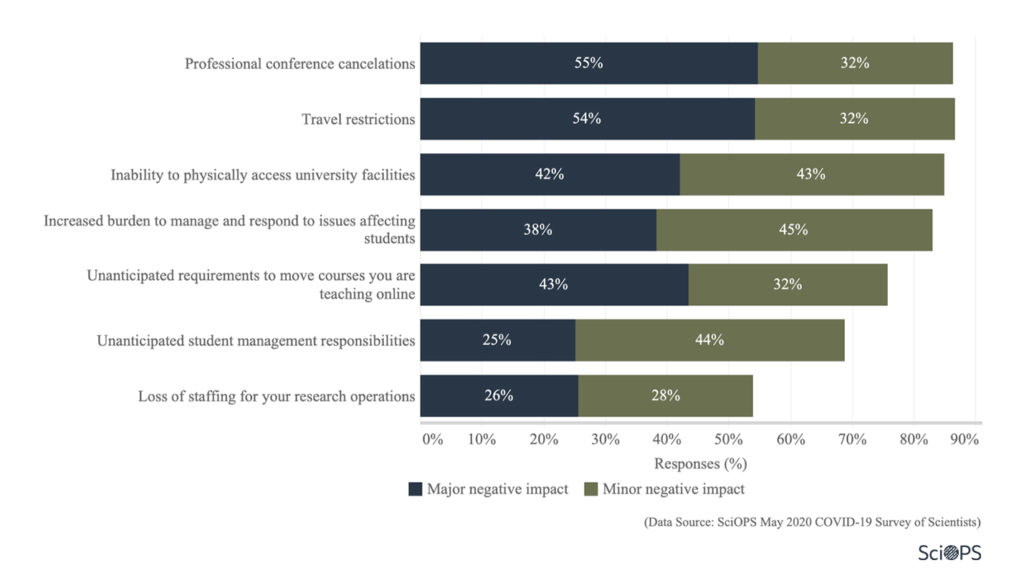
Finding
Large number of scientists responded that COVID-19 related work-life situations negatively impacted their research with the most common being conference cancelations (87%) and travel restrictions (86%).
Question
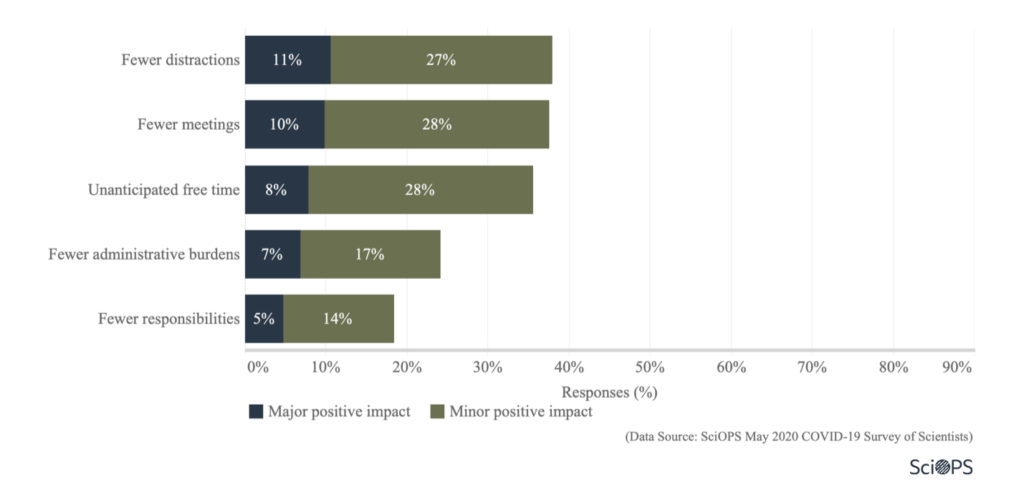
Finding
Scientists responded that the most positive ways in which their research was impacted by COVID-19 policies are fewer distractions (38%) and fewer meetings (38%).
Question
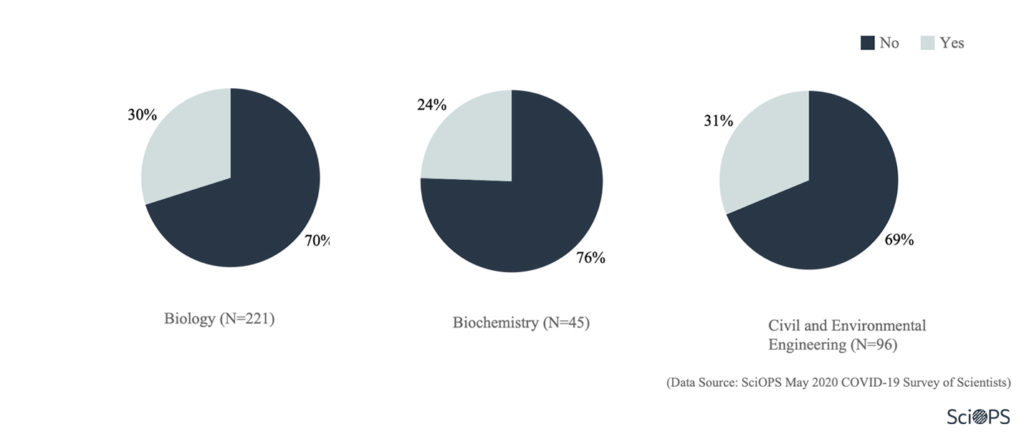
Finding
About 30% of biologists, 24% of the biochemists and 31% of engineers responded that they have at least one research grant that is facing financial problems related to the pandemic.
Question
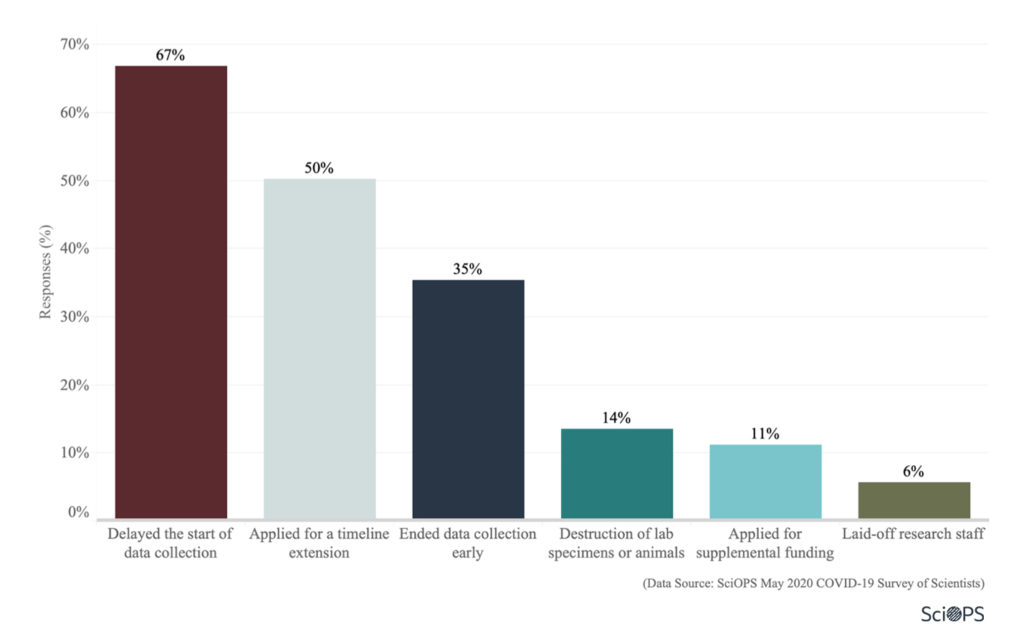
Finding
Of those facing grant financial problems (N=108), approximately 67% delayed the start of their data collection and about half applied for an extension as a result of financial problems.
Related Publications
A more in depth analysis of this study can be found in our recent publication “COVID-19 and the academy: opinions and experiences of university-based scientists in the U.S.” in Humanities and Social Sciences Communications.
You can also read policy memos about this study and others on Arizona State University’s Center for Science, Technology and Environmental Policy Studies website.
Survey Description
This national survey of scientists and engineers on the impacts of COVID-19 on academic research was conducted by the Center for Science, Technology and Environmental Policy Studies at Arizona State University. The project seeks to understand how COVID-19 and related policies impact academic research and funding, issues related to COVID-19 science communication, and regulation of COVID-19 research. The survey collected data on individual background and perceptions of impacts, behavior and expectations due to COVID-19. The population of the survey included tenured and tenure-track academic scientists from three fields (biology, civil and environmental engineering, and biochemistry) at 21 randomly selected universities classified as Carnegie designated research extensive (R1) universities in the United States.
The online survey was administered in English using Sawtooth Software®. 1,968 individuals were invited to participate in the survey via email with a series of personalized email follow-ups. The survey was opened on May 7 and closed on May 29, 2020. It resulted in 373 usable responses, with a response rate of 21% (AAPOR RR4). Responses are mostly from male respondents (63.5%), which is only slightly lower than the gender distribution in the population. The distribution of field also reflects the sampling frame, with 68.9% of respondents working in biology and genetics departments, 9.4% working in biochemistry departments and 21.7% working in civil and environmental engineering departments. The survey sample was weighted by gender and academic field. The measure of sampling error for questions answered by the full sample is plus or minus 5 percentage points.
